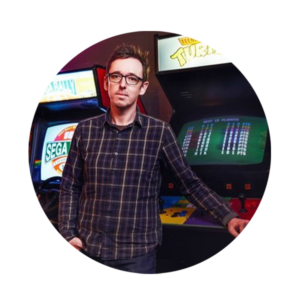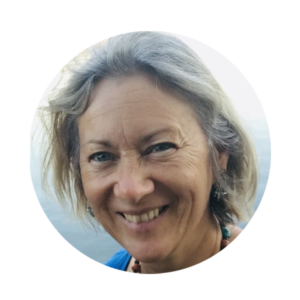Pleasures and Pitfalls of Technology – recording
Slides
Dr. Anna Mankee-Williams and Professor Minhua Eunice Ma
Key learning takeaways
- To explore the use of technology across a variety of contexts relating to children and young people
- To be able to be more aware of the application of technology for the benefit of children and young peoples mental health
- To be able to be more aware of potential risks of technology for children and ways to mitigate them
About the talks
Professor Pete Etchells – Making sense of screen time
Our screen-based lives, we have been told, are unwholesome, unnatural, and maybe even harmful. But what does science actually have to say about the effects of screen time? In this talk, we will look at some of the data behind recent concerns that screens and social media are driving problems in adolescent mental health, and what the best evidence can actually tell us about that relationship.
Learning outcomes
1. To understand the context of the cycle of public panics about technology
2. To critically assess longitudinal data looking at the associations between screen time and mental health
3. To consider alternative frameworks within which to consider technology effects
Sarah Behenna – Using Minecraft Clubs to support neurodivergent children with STEM
Established in 2014, Science Hunters aims to engage children, particularly those facing barriers to educational opportunities, with STEM through the innovative use of Minecraft. Our current initiative, ‘Engineering for Sustainable Societies’—funded by the Royal Academy of Engineering—aims to introduce children to the multifaceted aspects of engineering within sustainable development. Through collaboration with engineers, children not only learn about these concepts but also apply their newfound knowledge by constructing model sustainable societies in Minecraft. Together with engineers, we are developing 12 sustainable engineering-focused outreach sessions. These sessions are delivered in person at schools and community centres, as well as remotely via video calls, so that we can reach children who otherwise may not usually be able to attend sessions such as these, for example children in alternative educational provision.
To facilitate wider dissemination and utilization, the sessions will be compiled into a booklet, easily accessible for running STEM activities in schools, STEM clubs, or community centres. Both online and hard copies will be made available beyond the project’s duration, to enable more children to benefit beyond the project lifespan. Furthermore, resources from our previous Science Hunters project, ‘Building to Break Barriers,’ are freely accessible for download. During this presentation, Sarah will provide further insights into how Science Hunters’ Minecraft projects have proven particularly effective in engaging neurodiverse children with STEM.
Learning outcomes
- To understand how Minecraft can be used as an tool to increase children’s engagement with STEM
- To understand why Science Hunters Minecraft projects are particularly effective at supporting neurodiverse children
- Learn how you can use Science Hunters resources to support the children you work with
Ryan Smith, Simon Gregg, Karolina Brodacka, Rupert Mann ‘The Pleasures and Pitfalls of Technology in a SEN setting’
This conference will share insight on how we use technology in our SEN setting with the aim to delve into benefits of technologies and of course the challenges and risks our young people may face in and out of school.
Learning outcomes
- Insights of how we use technology in our SEN setting
- Benefits for our young people
- Challenges and Risks
Dr. Anna Mankee-Williams and Professor Minhua Eunice Ma – The Role of Digital Arts in Engaging Young People Experiencing ACE’s (The Attune Project: Understanding Mechanisms and Mental Health Impacts of Adverse Childhood Experiences)
The Attune Project is seeking to surface the unseen and unheard impact of ACE’s on the mental health of young people aged 10 – 24 years old through the lens of arts based research. Considered alongside quantitative analysis of 3 large data sets (Oxwell, Reach and Headstart) the insight gained is informing the co-design of a serious game, paying due regard to the principles of Narrative Exposure Therapy. The central tenant throughout the project is youth voice.
Learning outcomes
- To understand The Attune Project: an arts based project in an MRC funded space
- To understand the arts-based process through which the unseen and unheard lived experiences have informed the game development
- To understand the game development and concepts
About the Speakers

I’m a professor of psychology and science communication at Bath Spa University. My research looks at the behavioural and wellbeing effects of playing video games, and I’m also interested in metascientific issues regarding best practice in digital technology effects research. I’m also a science writer, and the author of the recently-released Unlocked: The real science of screen time (and how to spend it better). For five years I was the Guardian’s science blog network coordinator, and I’ve written numerous featured in New Scientist, Science Focus, the Guardian, the Observer, the New York Times, WIRED, the Telegraph, and more.

Sarah Behenna
Sarah is a researcher in Science Communication at the University of the West of England (UWE). In her current project (funded by the Royal Academy of Engineering) Sarah and Dr Laura Hobbs work with schools and community groups to engage children with sustainability and engineering through the use of the computer game Minecraft. Sarah has extensive experience in carrying out science communication, outreach, and public engagement from her work at UWE, as well as working for many years for Women in Science and Engineering and as a secondary Science and SEND teacher.
Ryan Smith, Simon Gregg, Karolina Brodacka, Rupert Mann
The members of staff from The Greater Horseshoe School delivering this section of the conference share a wealth of knowledge, skills and backgrounds in music & teaching. Over the last 5 years the team have built a successful performing arts department in a SEN setting utilising our own “Musers” site where the majority of our music, media & IT sessions take place.

Anna Mankee-Williams
Anna worked as a nurse, district nurse, midwife, health visitor and children’s public health lead in the NHS for 22 years, moving to Cornwall Council to lead the Every Child Matters Agenda in 2006. Within the Council Anna held a number of roles including Head of Service for Commissioning Performance and Improvement across children’s and adult services. With an all age portfolio across the organisations and disciplines Anna brings both provider and commissioner knowledge to the research arena. The most important question being ‘So What …..’

Professor Minhua Eunice Ma
Senior Research Fellow in the Department of Psychiatry. She joined University of Oxford in September 2023. Previously, she was the Deputy Vice-Chancellor and Provost at Falmouth University. With over two decades of experience in the HE sector, Professor Ma excels as an academic, researcher, and senior leader at universities across the UK. She has secured total research funding of £12m from sources such as UKRI, EU, NHS, NESTA, and government for her research in game-based interventions for adolescent mental health, stroke rehabilitation, cystic fibrosis, autism, preventing gender-based violence, and surgical simulation for medical and dental education. She has 139 peer-reviewed publications, supervised 24 PhD students with 16 successful completions, and holds key roles as Editor-in-Chief of the Elsevier journal Entertainment Computing and Founding Chair of the International Joint Conference on Serious Games. Furthermore, Professor Ma has served on international research council boards, including Horizon 2020 & Horizon Europe, UKRI, NIHR, French National Research Agency, Swiss National Science Foundation, Netherlands Organisation for Scientific Research, Academy of Finland, Cyprus Research & Innovation Foundation, to evaluate bids and projects.
